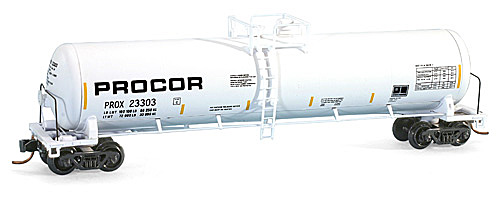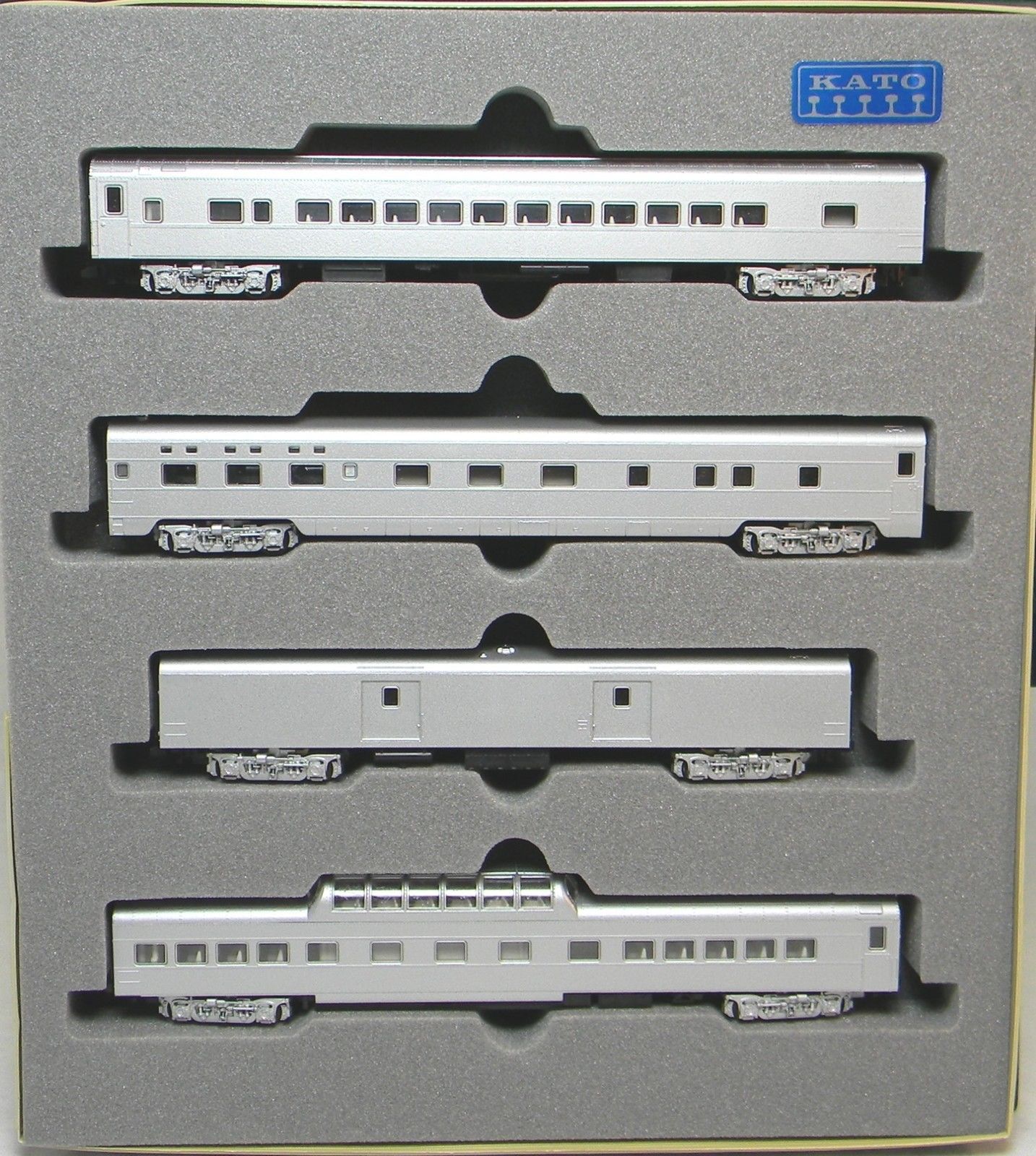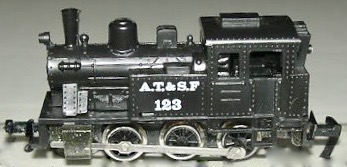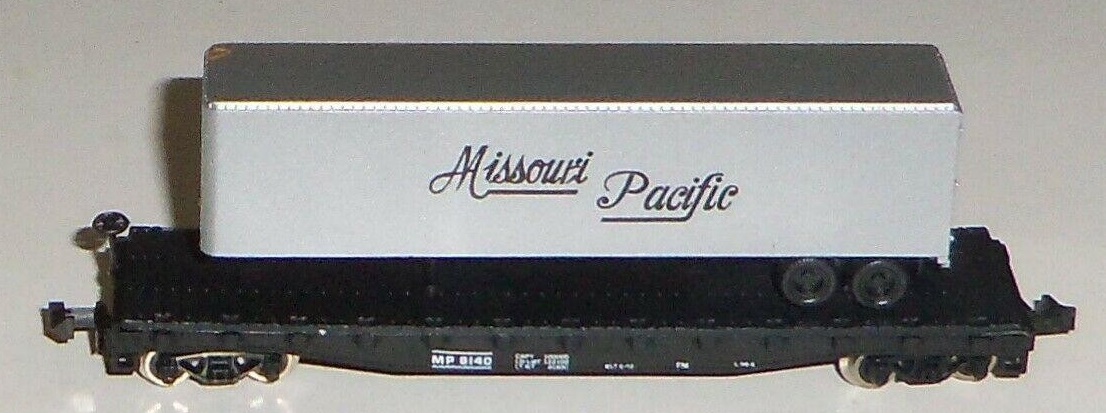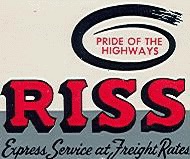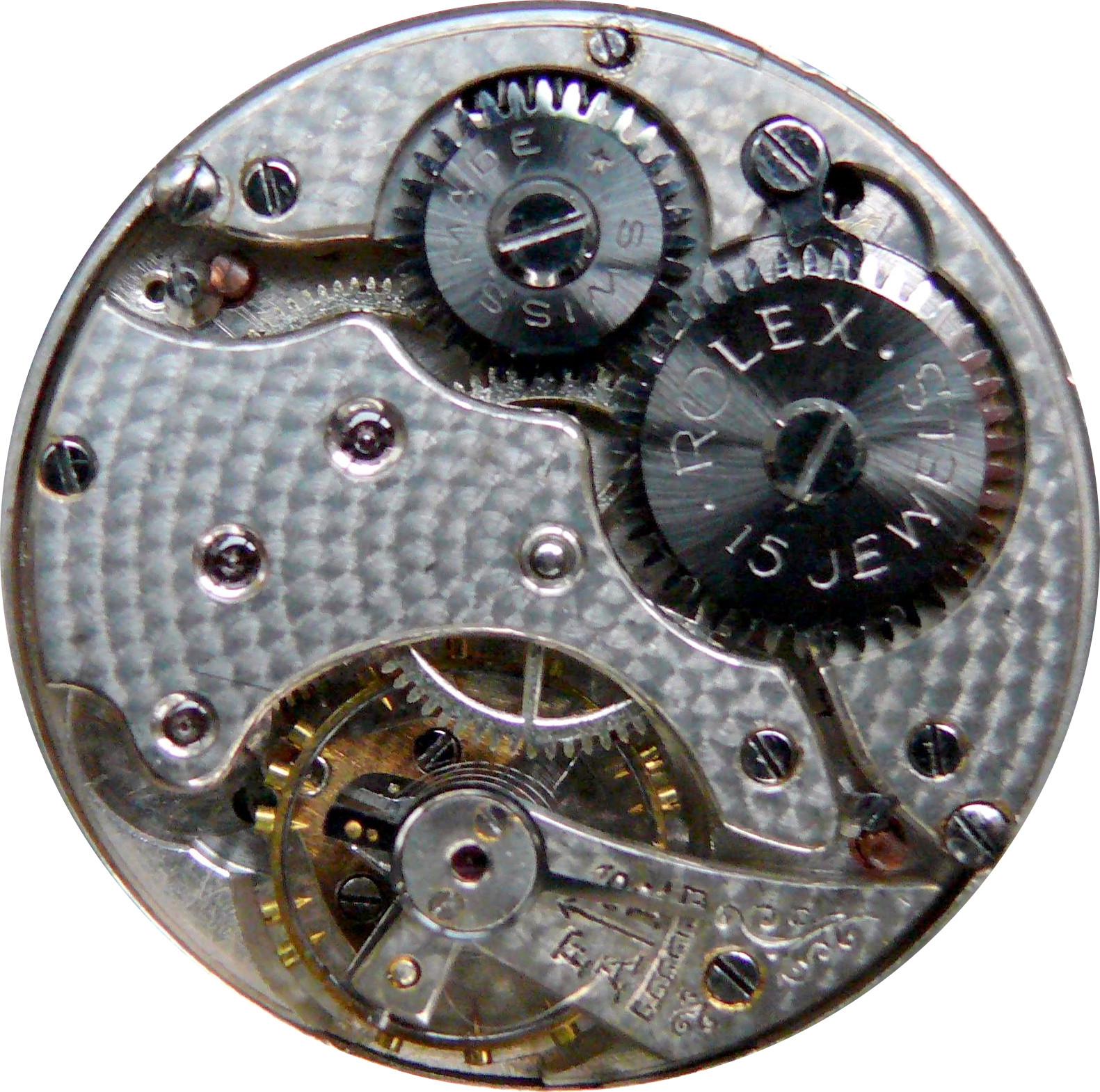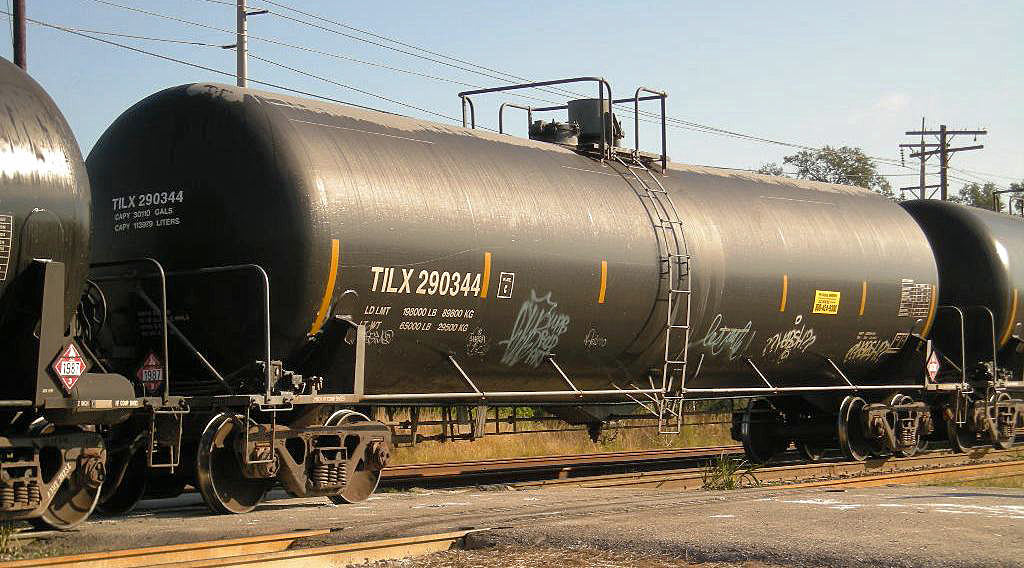Model Information: Model Introduced: August, 2001. Era: 1970s to Present. It is a model of a DOT 111 A100 tank car.
Prototype History: Larger 50+ foot yank cars replaced their smaller predecessors in the late 1960s and 1970s. One example is the class DOT 111 A100. This car is rated for non-pressurized use with a safe maximum operating pressure of 100 psi. Developments in materials and manufacturing allowed this tanker to be constructed without an underframe. The bottom of the tank itself serves as the load bearing structure. The primary difference between the various types of DOT 111 A100 class tank cars is internal with varying types of insulation, lining and even weld material. Cars of this type haul a wide variety of commodities such as gasoline, vegetable oils, corn syrup, fruit juice and weed killers.
Road Name History: 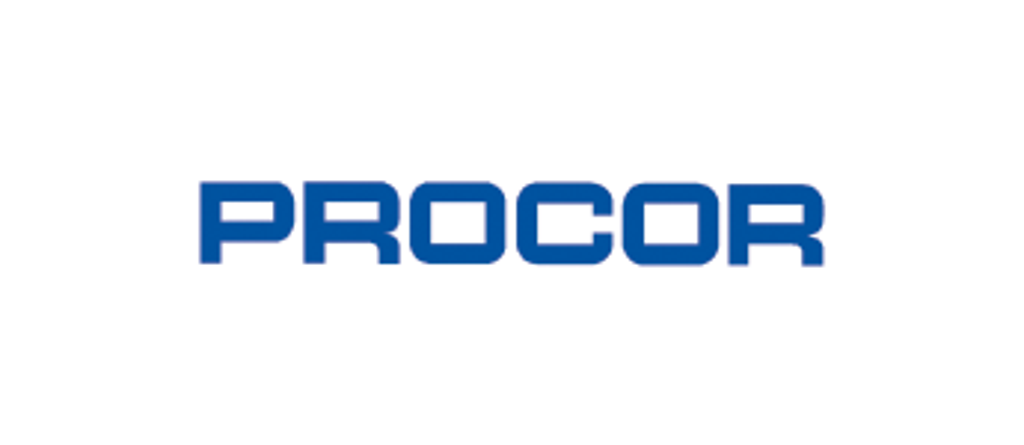 Procor is a Canadian company producing railway shipping cars. It is Canada's largest private rail car rental fleet, with more than 21,000 conventional and special-purpose tank and freight cars. Linked to Sparling Tank Car of Toronto, Procor was founded in 1952 as Products Tank Line Limited and became an affiliate of US-based Union Tank Car Company. Within a few years they had become a major player in Canadian tank car operations through the acquisition of the Transit Co./Imperial Oil fleet in 1955, along with a number of smaller operators such as Canadian Industries Ltd. circa late 1956. The company, which shortened its name to Procor in 1962, is headquartered in Oakville, Ontario.
Procor is a Canadian company producing railway shipping cars. It is Canada's largest private rail car rental fleet, with more than 21,000 conventional and special-purpose tank and freight cars. Linked to Sparling Tank Car of Toronto, Procor was founded in 1952 as Products Tank Line Limited and became an affiliate of US-based Union Tank Car Company. Within a few years they had become a major player in Canadian tank car operations through the acquisition of the Transit Co./Imperial Oil fleet in 1955, along with a number of smaller operators such as Canadian Industries Ltd. circa late 1956. The company, which shortened its name to Procor in 1962, is headquartered in Oakville, Ontario.

Brand/Importer Information: Micro-Trains is the brand name used by both Kadee Quality Products and Micro-Trains Line. For a history of the relationship between the brand and the two companies, please consult our Micro-Trains Collector's Guide.
Manufacturer Information:  Micro-Trains Line split off from Kadee Quality Products in 1990. Kadee Quality Products originally got involved in N-Scale by producing a scaled-down version of their successful HO Magne-Matic knuckle coupler system. This coupler was superior to the ubiquitous 'Rapido' style coupler due to two primary factors: superior realistic appearance and the ability to automatically uncouple when stopped over a magnet embedded in a section of track. The success of these couplers in N-Scale quickly translated to the production of trucks, wheels and in 1972 a release of ready-to-run box cars.
Micro-Trains Line split off from Kadee Quality Products in 1990. Kadee Quality Products originally got involved in N-Scale by producing a scaled-down version of their successful HO Magne-Matic knuckle coupler system. This coupler was superior to the ubiquitous 'Rapido' style coupler due to two primary factors: superior realistic appearance and the ability to automatically uncouple when stopped over a magnet embedded in a section of track. The success of these couplers in N-Scale quickly translated to the production of trucks, wheels and in 1972 a release of ready-to-run box cars.
Micro-Trains Line Co. split off from Kadee in 1990 to form a completely independent company. For this reason, products from this company can appear with labels from both enterprises. Due to the nature of production idiosyncrasies and various random factors, the rolling stock from Micro-Trains can have all sorts of interesting variations in both their packaging as well as the products themselves. When acquiring an MTL product it is very important to understand these important production variations that can greatly enhance (or decrease) the value of your purchase.
Please consult our Micro-Trains Collector's Guide

Micro-Trains Line Co. split off from Kadee in 1990 to form a completely independent company. For this reason, products from this company can appear with labels from both enterprises. Due to the nature of production idiosyncrasies and various random factors, the rolling stock from Micro-Trains can have all sorts of interesting variations in both their packaging as well as the products themselves. When acquiring an MTL product it is very important to understand these important production variations that can greatly enhance (or decrease) the value of your purchase.
Please consult our Micro-Trains Collector's Guide
Item created by: Lethe on 2015-05-31 17:46:30. Last edited by George on 2024-01-26 20:28:51
If you see errors or missing data in this entry, please feel free to log in and edit it. Anyone with a Gmail account can log in instantly.
If you see errors or missing data in this entry, please feel free to log in and edit it. Anyone with a Gmail account can log in instantly.


